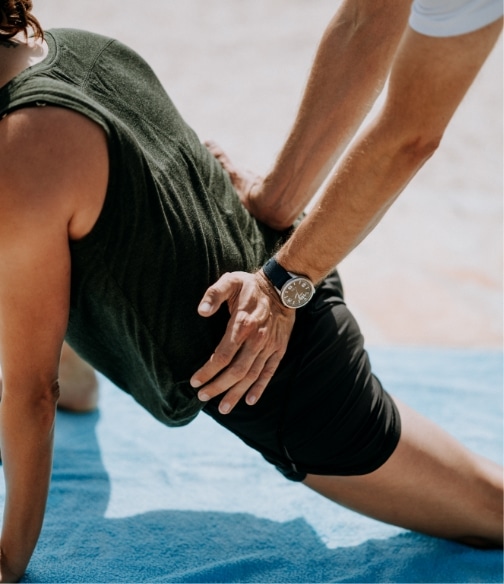Sports Physiotherapy
Sports Therapy treatment is incredibly effective, hands-on, safe, and works to relieve pain and recover from injury.



Why Physiotherapy?
Athletes use Sports Physiotherapy for fast recovery after injury, overtraining, or preparation for “stressful” sporting events. If you are constantly training week after week, the risk of a training injury will almost certainly increase. Unfortunately, the mind can push the body faster than the body’s structure can change. We use skilled Physiotherapy, exercise and Massage techniques to speed recovery to the fastest rate. Speeding up the body’s recovery time is essential at a sporting level as periods of inactivity may slow progress.
Our approach
Hatfield Practice can provide an intensive treatment program during the lead-up and sporting events such as competitions or marathons. Sports Physiotherapy works well with athletes at all levels, and for most sports, Hatfield Practice provides Osteopaths, Physiotherapists, Acupuncturists, Sports Massage Therapists. We’re used by local league sides, occasional joggers, and sporting beginners and have worked with numerous elite athletes and professional football clubs, senior rugby sides, numerous athletic squads, and teams.
What to expect
Your first consultation can take anything from 30 mins up to an hour, including:
The Sports Physiotherapy treatment starts with a medical case history, often followed by spinal and neurological examinations. The Physiotherapist may test functional muscle performance and undertake a joint exam to check the body’s structure and function. The treatment provided by the Physiotherapist will depend on the presenting condition. Although they may perform joint manipulation, deep soft tissue massage and specific therapeutic nerve stretches. Patients tell us that this style of Sports Physiotherapy provides a fantastic sense of lightness and freedom of movement.
Sports treatments may also include manipulation of the spine to improve the overall flexibility and joint mobilisation, a form of hands-on mobilisation of peripheral joints that ease restricted or stiff joints. After the Sports Physiotherapy treatment, you may feel lighter, free and invigorated due to endorphins and improved blood flow. Flexibility and pain-free muscles may mean we can perform to our very best.

Sports Therapy Treatment
- Massage and free injured or stiff joints
If the body is not functioning especially well, you may feel stiffness and pain after sport. Lack of flexibility may slow you down and require more muscular effort and energy to move. Restricted body parts are generally more prone to injury, reduce stamina, and make movement much less efficient. Your potential full range of motion will probably not be achieved either, reducing performance. The Sports Physio will formulate a rehabilitation program for you.
- Connect the body
When one part of the body doesn’t function well, it may affect other areas. For example, a neck restriction can irritate the motor fibres of the nerves that supply the arm, reducing the response of the target muscles as far away as the fingers. Muscle chains are muscles that enhance (or reduce tone)in other muscles, e.g., postural muscles in the neck can affect postural muscles in the lower back so that a lower back weakness can be caused by muscular tension in the neck.
- Sports Physiotherapy will stimulate relevant muscle groups
Muscles that are not relaxed and alert will not react fast and explosively but will be more prone to injury and consume excessive energy. Tight muscles will also reduce your range of movement.
- Help you breathe better
A tight diaphragm will restrict your breathing, reducing your oxygen intake and adversely affecting your performance and recovery. Treatment achieves this in part by improving rib, thoracic spine and accessory respiratory muscle function.

What Our Patients Say
- Tom S. Personal Trainer, Hatfield Hertfordshire
- Jeff, Hertfordshire
- Hayley, Hertfordshire
- David, St Albans
- Alistair (Sprinter) – Welwyn Garden City


